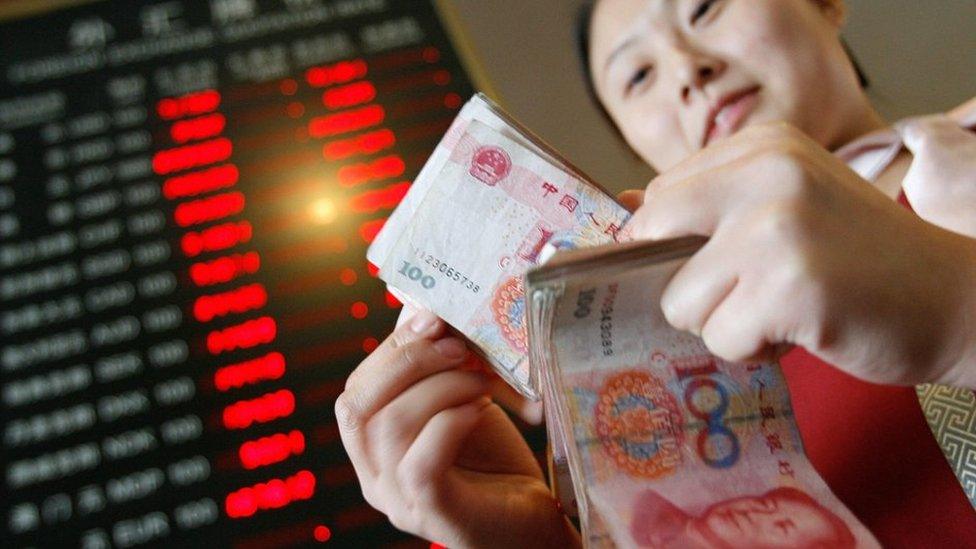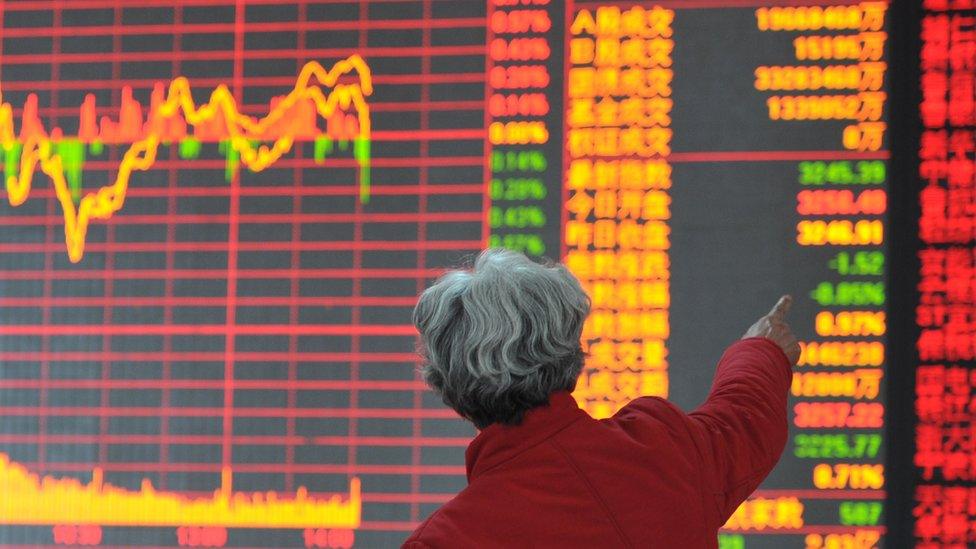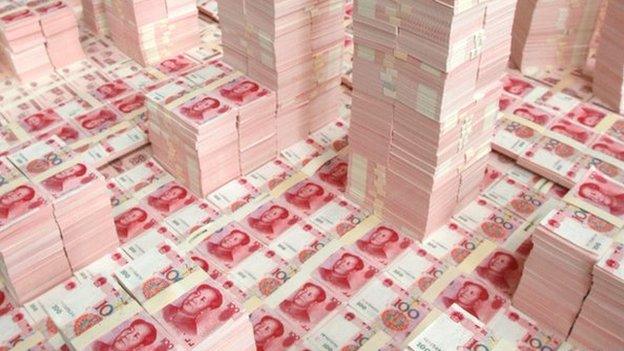The Chinese yuan is going global
- Published
The BBC's Karishma Vaswani explains the significance of the Chinese currency being included in the IMF basket
Mark this date in your calendars.
When you look back, you'll remember it as the day the Chinese yuan began its journey to become one of the world's most important currencies.
The International Monetary Fund (IMF) has announced that the yuan is now part of an elite basket of currencies that until now included only the US dollar, the Japanese yen, the euro and the British pound.
The yuan won't actually start being a part of the basket until September 2016 - so this move won't have any immediate impact on financial markets.
But don't kid yourself. This largely symbolic gesture is an historic one - and a sign that China is rising ever faster and further on the global financial stage.
So what does that mean for the rest of us? Well, by some accounts it's the start of a whole new world order.
Nomura Securities predicts that by 2030 the yuan will become one of the top three major international currencies - "a peer to the US dollar and the euro as the most used currencies in the world."
But all of this depends on whether China continues its financial reforms - which have been one of the main reasons behind the IMF's decision to include the yuan in this elite basket.
The IMF said the decision was "an important milestone in the integration of the Chinese economy into the global financial system" and that it would bring about "a more robust international monetary and financial system".
A whole lot more yuan

Beijing sees the inclusion of the yuan as a sign of just how important China has become to the global financial system
Nomura says that although the yuan's share of trading volumes in the international currency market is still small - less than 2% relative to China's share of global gross domestic product - that its daily trading volume tripled between 2010 and 2013, from $34bn (£22.6bn) to $120bn.
That means there's a whole lot more yuan on the markets.
China has been working towards this for the last few years - and it's remarkable that their highly managed currency has been deemed fit to enter this special basket of freely traded currencies.
Beijing sees the inclusion of the yuan as a sign of just how important China has become to the global financial system.
In order to make this happen, the world's second largest economy has pushed through a number of changes in recent times - including allowing foreign investors to access its stock markets.
Transparency key

The effective devaluation of the yuan earlier this year took markets by surprise
But just how transparent China will be about the way it runs its financial markets will be a key determinant as to whether the yuan gets to the next step.
It's clearly become an ambition for the powers that be in Beijing to see the yuan become a true global currency - alongside the US dollar, the yen and the euro.
In the face of slowing economic growth in China, analysts have acknowledged there have been some worrying signs that the government is either trying to roll back on some key financial reforms - or that the chaps in charge really don't know what they're doing.
Case in point: the effective devaluation of the yuan earlier this year took markets by surprise - and the People's Bank of China was widely criticised for mishandling the communication around how those events unfolded.
Now, Chinese officials will be under even more pressure - and scrutiny - to get their message right. The world will be watching to see what kind of impact more yuan circulating the international markets will have.
If the yuan becomes a fixture of the global economy, then it's likely the rest of the world will become even more exposed to what Beijing does - which will make it ever more important that China's leaders push through meaningful financial reforms.
- Published8 September 2015
- Published24 August 2015
- Published26 May 2015
